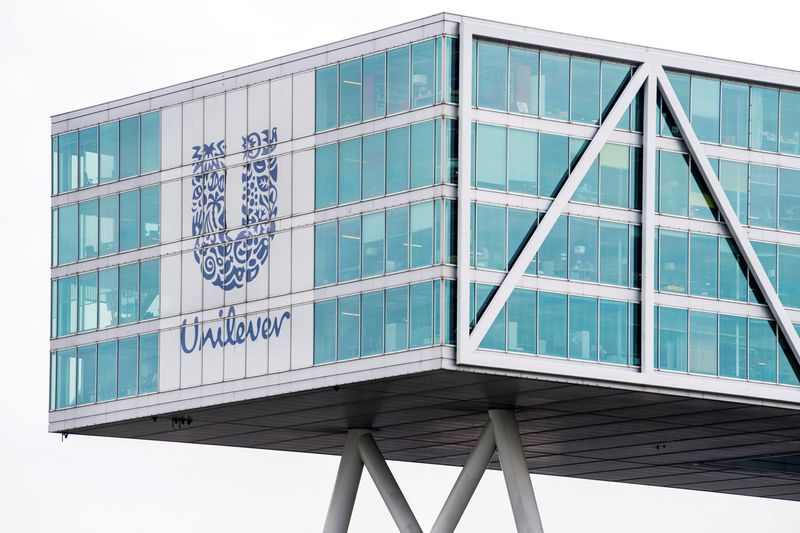By Richa Naidu
LONDON (Reuters) - Unilever (NYSE:UL), which has faced criticism for over a year for remaining in Russia, said on Tuesday that it could abandon, sell or retain its operations there but the "least bad" option is to "pursue our business but in a highly constrained manner".
The Russian state this month took control of French yoghurt maker Danone's Russian subsidiary along with Carlsberg (OTC:CABGY)'s stake in a local brewer.
Moscow's actions highlight the vulnerability of other consumer products companies that still have operations in Russia, some of which have announced plans to leave.
"The first option is to abandon our business. We feel that, in effect, that could result in it being nationalised, given all of the developments that have recently taken place," new Unilever CEO Hein Schumacher said on a call with journalists.
"The second option is to sell the business, but the reality is, we have not found a viable solution that meets our stated objectives."
"None of the options are actually good, but the final option of operating our business in a constrained manner is the least bad and that is where we are."
Schumacher said Unilever has not been in touch with the Russian government in the wake of its moves on Danone and Carlsberg.
The company, which owns the Knorr soup and Dove soap brands, employs over 3,000 people in Russia. In March 2022 Unilever became the first major European food company to stop imports into and exports out of Russia after the country's invasion of Ukraine.
Unilever said at the time it would not invest further in Russia and would also stop all media and advertising spending there, adding that its Ukrainian operations had also stopped.
However, it continued to supply its everyday essential food and hygiene products made in Russia to people in the country, while saying it would not take any profit from those sales. All earnings made in Russia stay there, the company said.
Unilever had said in February "there is a risk" that it may have to stop doing business in Russia, and that it might have to take a loss or write down its assets there.

Former CEO Alan Jope said at the time "volumes in our Russian business are down significantly, by double digits".
Unilever on Tuesday reported earnings, beating underlying sales growth forecasts after again raising prices to offset higher costs and sending its shares higher.